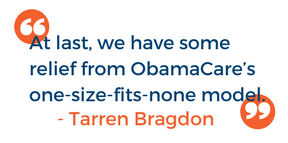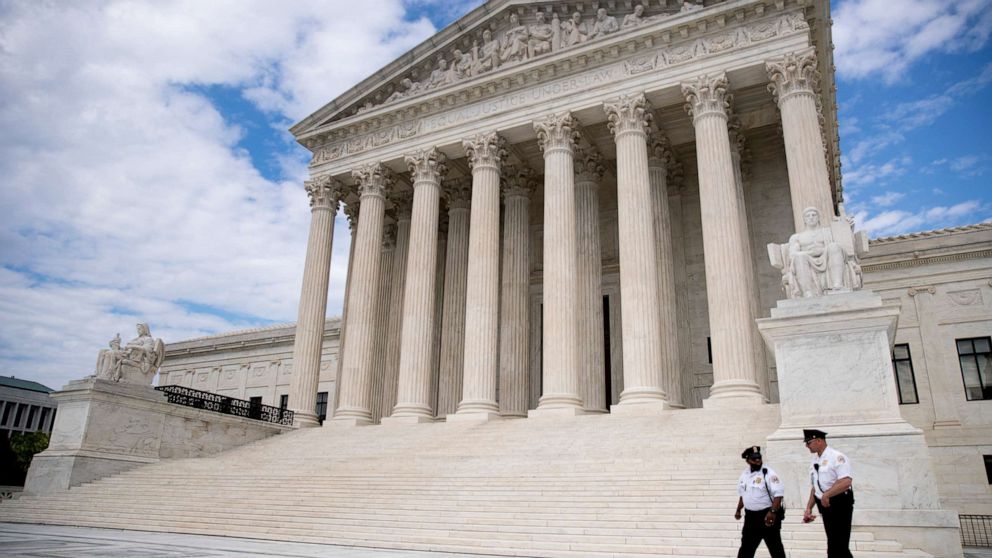Relief for Patients and the Rule of Law

Ellen Weaver
This week marked big news for Americans struggling to find affordable health care. South Carolinians’ insurance premiums have skyrocketed under Obamacare, and are projected to rise over 30% this coming year alone.
The first bit of relief: an Executive Order rolling back several Obamacare regulations that have driven up the cost of premiums. Tarren Bradgon, a free-market health care expert and President of the Foundation for Government Accountability, put it like this:
The executive order will greatly help to increase affordability and flexibility for consumers by lifting some of the insurance rules set by ObamaCare and expanding options for individuals who purchase insurance on their own or for work a small business. It directs agencies to explore ways to ease regulations and lower premiums across the board, and to begin expanding health reimbursement accounts that we know increase options for consumers.
But it doesn’t end there: the executive order directs agencies to begin reinstating short-term medical insurance, a low-cost option that will provide a much-needed option for those who are currently priced out of existing coverage options.
At last, we have some relief from ObamaCare’s one-size-fits-none model.
The addition of short-term plans and the commitment to easing regulations will provide consumers and employers with much-needed relief from the unsustainable cost and impact of ObamaCare. People will finally have the freedom to choose the plan that fits best for themselves and their families—without breaking their budgets.
The Administration followed up this promising news with what PPI Visiting Fellow Chris Jacobs calls a long-overdue restoration of the rule of law.
Late Thursday evening, the Administration announced that it was immediately ending cost-sharing reduction payments to health insurers offering plans in Obamacare Exchanges. And regardless of what the press or liberals might claim, the decision isn’t, or shouldn’t be, about “sabotage.” It isn’t, or shouldn’t be, about Obamacare “imploding.” It’s about one thing—and one thing only: The rule of law.
The text of Obamacare nowhere includes an appropriation for the cost-sharing reduction payments, which reimburse carriers for discounting deductibles and co-payments for low-income Exchange enrollees. The Obama Administration knew that—but went ahead and made the payments anyway. One slight problem: The Constitution clearly gives the “power of the purse” to Congress: “No Money shall be drawn from the Treasury, but in Consequence of Appropriations made by Law.”
Without an appropriation, the Trump Administration has no choice but to end the payments to insurers—just as the Trump Administration would have no choice but to make the payments to insurers if an appropriation existed. One can easily make the argument—as this observer has—that the Administration should have ended the payments months ago.
For the time being, individuals likely will not see any direct effects from the payments ceasing. Carriers cannot exit Exchanges mid-year, and contracts for the 2018 plan year are already signed. (A provision in carriers’ 2017 and 2018 contracts lets them exit Exchanges if enrollees do not receive cost-sharing reductions—not if the insurers themselves do not receive reimbursement for those cost-sharing reductions. This clause, awkwardly drafted by insurers’ counsel, may provide them with little legal recourse—and further highlights their questionable assumptions and behavior surrounding the subsidies.) So maybe—just maybe—Washington can spend some time focusing on the real issue behind the Administration’s action: Upholding the Constitution.
Curing what ails health care – one-fifth of our nation’s economy – isn’t going to happen overnight. Much more still needs to be done to restore the doctor-patient relationship and return power over health care back to states and their individual citizens.
But in the absence of Congressional action, the Trump Administration is taking concrete, lawful steps to roll back unconstitutional DC overreach and help people better afford access to the health care they need. This is great news for the health of South Carolina patients…and the Constitution.




